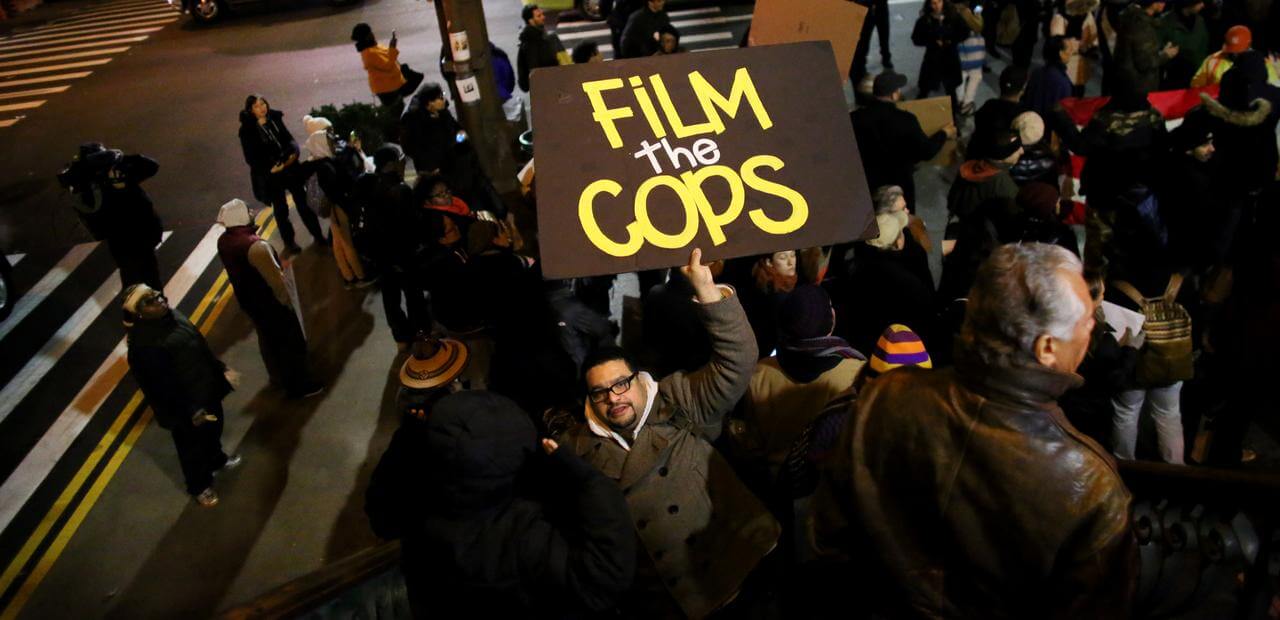El Grito de Sunset Park sounds off on the Right to Record Act

Photo courtesy of El Grito de Sunset Park
One Sunset Park group — known for filming encounters between civilians and the police — has a great deal to say about new legislation whose goal is to make it easier for civilians to film such encounters, and not all of it is good.
Following videos that captured the shooting and deaths of Alton Sterling in Louisiana, and Philandro Castile in Minnesota, Brooklyn Councilmember Jumaane Williams was joined by local dignitaries and advocates from several organizations on Thursday, July 14 to introduce the Right to Record Act.
The new bill will prohibit police officers from interfering with, or intimidating individuals from recording their activities, and establishes a cause of action for violating the act.